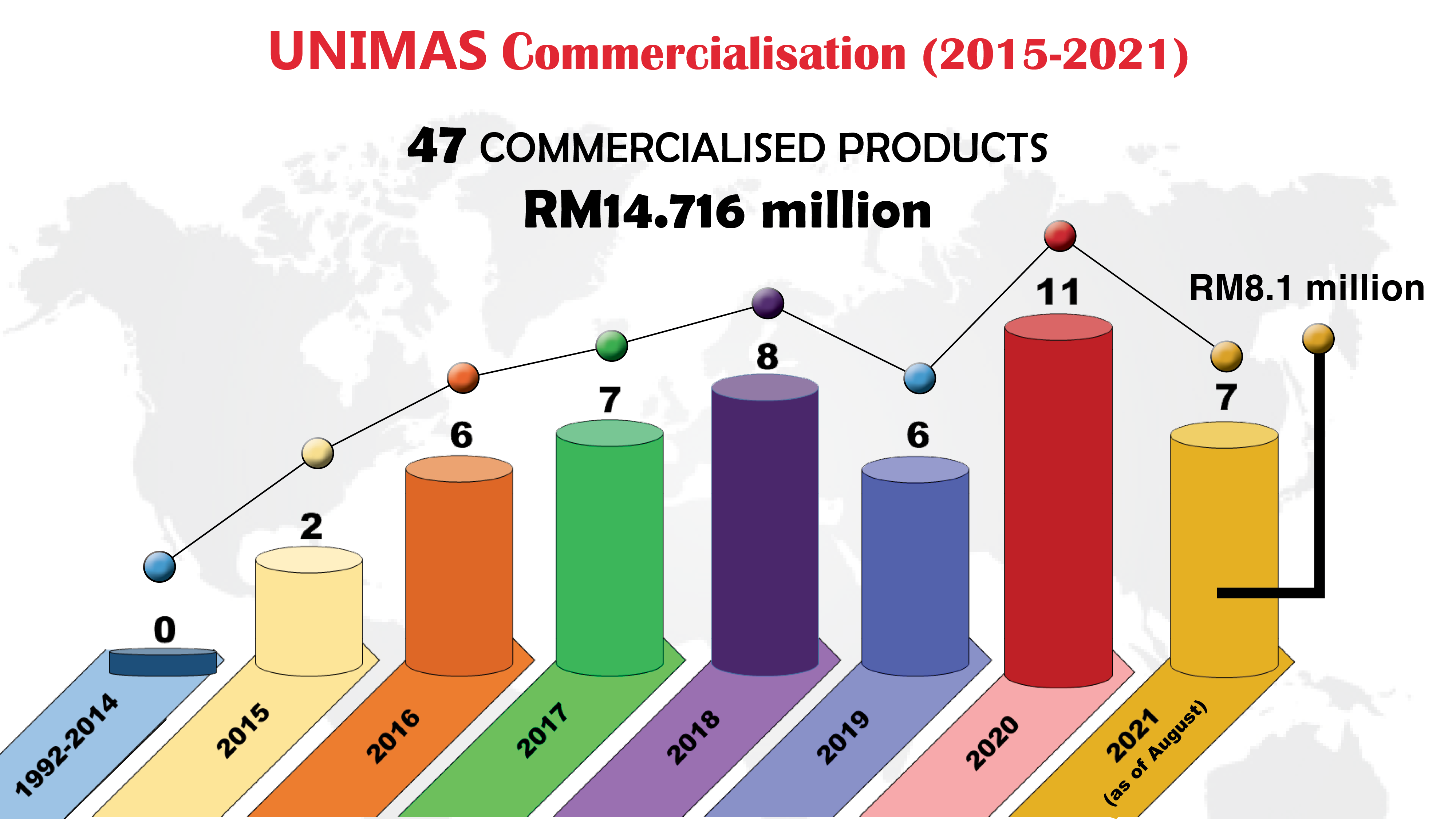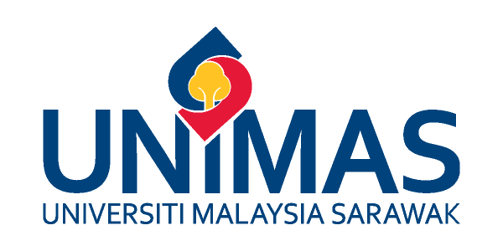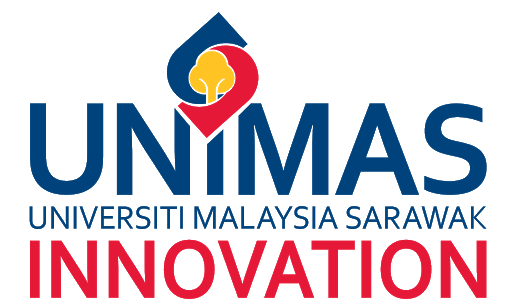COMMERCIALISATION
Commercialization can be in the following forms:
- Licensing (for innovation with intellectual property protection). The minimum amount for this category is RM 10,000 and can be done through a) Exclusive license and b) non-exclusive license.
- Surrendering of rights. UNIMAS can surrender the rights fully to a certain party through direct sell to the party. However, the surrendering of partial rights is also allowed for example to certain geographical locations or applications.
-
Technology transfer. UNIMAs can transfer the technology to a certain party with reasonable compensation and not limited to monetary terms.
- Exclusive license. UNIMAS Innovation transfer the rights to exploit the intellectual property to the license holder. This means UNIMAS give up the right to exploit the intellectual property or giving the right to subsequent licensing to certain party. However, UNIMAs still retains the rights to usage, doing subsequent research and development or exploitation of the intellectual property for non-commercial purpose.
- Non-exclusive license. UNIMAS can give the right to exploit the intellectual property to one or more party. In this type of licensing, UNIMAS can have the rights to sub-license to the license holders.
Commercialisation can be in the following forms:
- Licensing (for innovation with intellectual property protection). The minimum amount for this category is RM 10,000 and can be done through a) Exclusive license and b) non-exclusive license.
- Surrendering of rights. UNIMAS can surrender the rights fully to a certain party through direct sell to the party. However, the surrendering of partial rights is also allowed for example to certain geographical locations or applications.
-
Technology transfer. UNIMAs can transfer the technology to a certain party with reasonable compensation and not limited to monetary terms.
- Exclusive license. UNIMAS Innovation transfer the rights to exploit the intellectual property to the license holder. This means UNIMAS give up the right to exploit the intellectual property or giving the right to subsequent licensing to certain party. However, UNIMAs still retains the rights to usage, doing subsequent research and development or exploitation of the intellectual property for non-commercial purpose.
- Non-exclusive license. UNIMAS can give the right to exploit the intellectual property to one or more party. In this type of licensing, UNIMAS can have the rights to sub-license to the license holders.

Commercialised Products 2021
The IoT-Based Micro Farming Training Module is a product designed and developed by the Faculty of Computer Science and Information Technology (FCSIT), Universiti Malaysia Sarawak. The agricultural techniques and IoT technology proposed in this module are closely related to the topics in the syllabus of Design and Technology subjects in Forms 1-3. It can be used as an effective practical training for them, and can also act as a catalyst and foundation of awareness to other students, parents, family members, as well as project participants themselves to practice modern technologies in agriculture.
Rumah Ketam UNIMAS is a new design and re-scaled crab pen culture system. The design feature of this crab culture system which is not available in the market, has a unique approach whereby it imitates the air pocket system of boat design so that it can be semi-submerged in the water.
Rumah Ikan UNIMAS is portable structure like container used for keeping fish in. This portable fish tank system is made of the combination main materials such as Fibre Glass and aluminium structures. This structure will be built based on identified size for growing and fattening any freshwater or saltwater fish within their natural habitat. The design is able to expedite the growth of freshwater and saltwater fish and suitable to located in the rivers, ocean, dam, pond etc.
SmartAGW is a cloud-based integrated information system to assist farmers to monitor the process of Agarwood from the seeding stage to harvesting to inoculation. SmartAGW consists of Plant Inventory and Soil Inventory.
Using GPS coordinates and past weed control activities, SmartAGW enables intelligent scheduling of weed control tasks according to different regions in the farm. This allows the distribution of the limited weed control workforce to be done efficiently based on the existing weed control pattern using machine learning.




